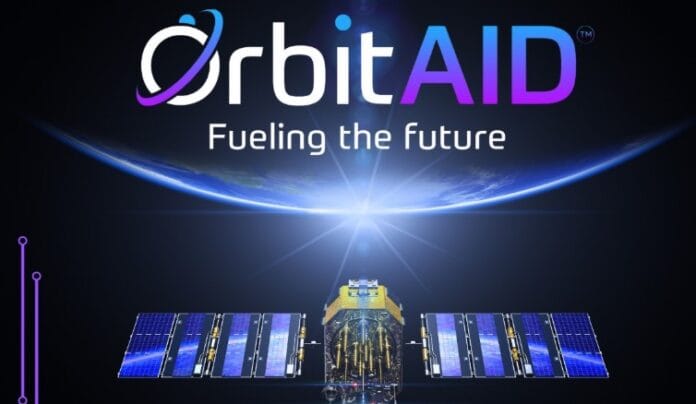December 23, 2024: OrbitAID Aerospace, an innovative startup focused on satellite servicing, has successfully tested its groundbreaking Standard Interface for Docking and Refuelling (SIDRP) technology during a zero-gravity flight in Florida. This milestone marks a critical leap forward in the future of satellite operations and sets the stage for a new era of sustainable space exploration.
The SIDRP technology was tested under simulated space conditions aboard a special zero-gravity flight, designed to replicate the weightless environment of space. The test demonstrated the precision and reliability of OrbitAID’s system, validating its potential for on-orbit satellite servicing—a key advancement toward extending the lifespan of satellites and reducing space debris.
The OrbitAID Breakthrough: Simulating Space in Zero Gravity
A zero-gravity flight is not a simple experience; it’s a powerful tool used by NASA and other space agencies for over 50 years to simulate microgravity conditions. In these flights, an aircraft flies in a parabolic arc, creating brief periods of weightlessness. The crew, including OrbitAID’s founder, Sakthikumar R, and co-founder, Nikhil Balasubramanian, participated firsthand in overseeing the SIDRP test during these short zero-gravity phases.
The test focused on the key capabilities of the SIDRP system, which are critical for satellite servicing in space. These include the ability to dock, refuel, and perform proximity operations, all while dealing with the unique challenges posed by microgravity. The success of this test has not only proven the system’s reliability but also reaffirmed satellite servicing firm’s commitment to advancing space sustainability.
A Game-Changer for Sustainable Space Operations
The implications of OrbitAID’s success in testing SIDRP go far beyond technical achievement. The technology holds the potential to transform how satellites are serviced in space. By enabling docking and refuelling capabilities, the system extends the operational lifespan of satellites, significantly reduces space debris, and optimizes resources in orbit—essential elements for long-term sustainability in space exploration.
“Today is a proud moment for all of us at OrbitAID,” said Sakthikumar R, the founder and CEO of OrbitAID. “The successful testing of SIDRP in microgravity conditions is a significant step closer to achieving our vision of sustainable satellite operations through on-orbit servicing. Our technology’s precision, demonstrated under real microgravity conditions, reinforces its robustness and opens the door to a new era of satellite servicing in space.”
A Vision for the Future of Space Sustainability
The SIDRP system addresses two major concerns in space exploration today: the increasing amount of space debris and the finite lifespan of satellites. As more satellites are launched into orbit, the need for in-orbit servicing to refuel, repair, and maintain them becomes more critical. Without such servicing, satellites are often abandoned after their fuel runs out, contributing to space junk that poses risks to future missions.
“The successful test of SIDRP in microgravity proves not only its potential for satellite refuelling but also its ability to contribute to the sustainability of space operations,” said Nikhil Balasubramanian, the co-founder and COO. “Extending the operational life of satellites while reducing debris is essential to achieving our goals for the next phase of space exploration. We are excited to continue developing this technology and work towards demonstrating it in orbit early next year.”
OrbitAID’s Next Steps: Demonstration in Orbit
With this successful test, OrbitAID is gearing up for the next phase: demonstrating docking and refuelling capabilities in space, expected to take place in the early part of next year. This will be a critical test of SIDRP’s functionality in actual space conditions, further solidifying its potential as a game-changing technology for satellite servicing.
As satellite servicing firm advances toward this next milestone, the Indian startup is poised to become a global leader in space innovation, taking significant strides toward reshaping how the world views space sustainability. The achievement is not just a technological victory for OrbitAID, but a victory for the entire space community—offering a clear path to more sustainable, cost-effective, and long-lasting space operations.
OrbitAID’s Global Impact
The satellite servicing startup success in zero-gravity testing places India at the forefront of satellite refuelling technology, a rapidly growing area in space exploration. As space becomes more crowded with satellites, the need for technologies that can extend satellite lifespans and maintain their functionality will become even more essential. With SIDRP, satellite servicing firm has demonstrated that satellite refuelling in space is no longer just a vision—it’s a tangible reality.
The startup’s innovative approach reflects the increasing focus on sustainability in space—a concept that aligns with global efforts to tackle challenges such as space debris and the environmental impact of space missions. The company’s visionary leadership and technical expertise have put India on the map as a key player in the future of space exploration.
A New Era for Satellite Servicing and Space Sustainability
OrbitAID’s achievement is not just a technological milestone but a turning point in how we think about space exploration. As SIDRP moves closer to operational deployment, it signals the start of a new era where satellites can be serviced, extended, and maintained on-orbit, ensuring the longevity and sustainability of critical space infrastructure.
This achievement is a testament to the growing role of Indian startups in driving space innovation, proving that with the right mix of vision, technology, and collaboration, India can lead the charge in addressing some of the most pressing challenges in space today.



